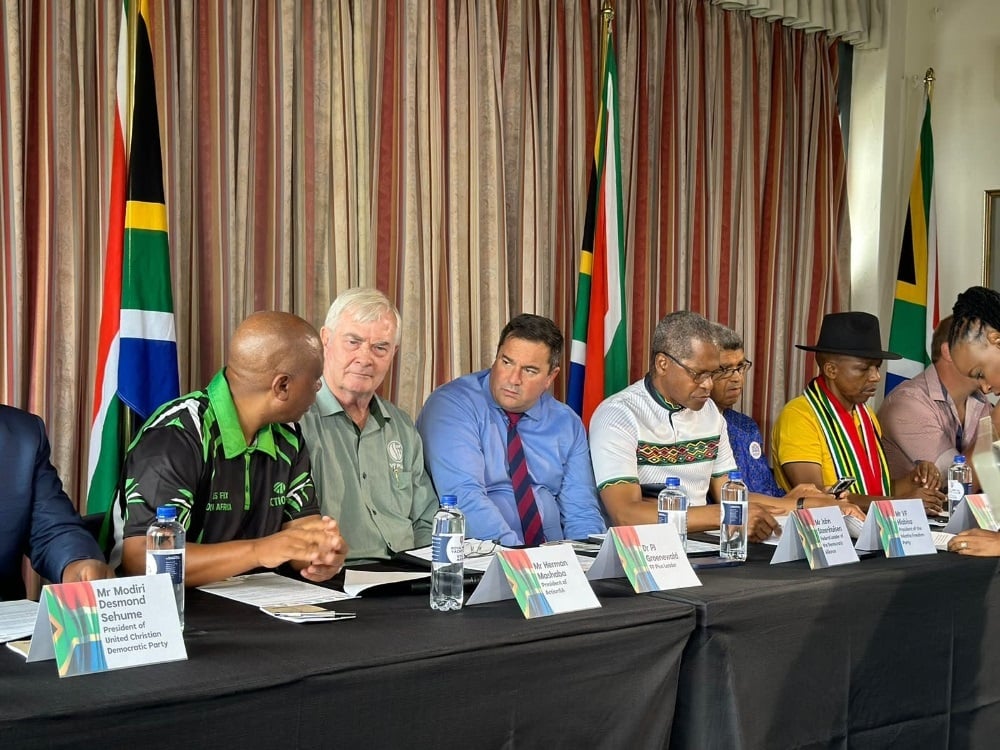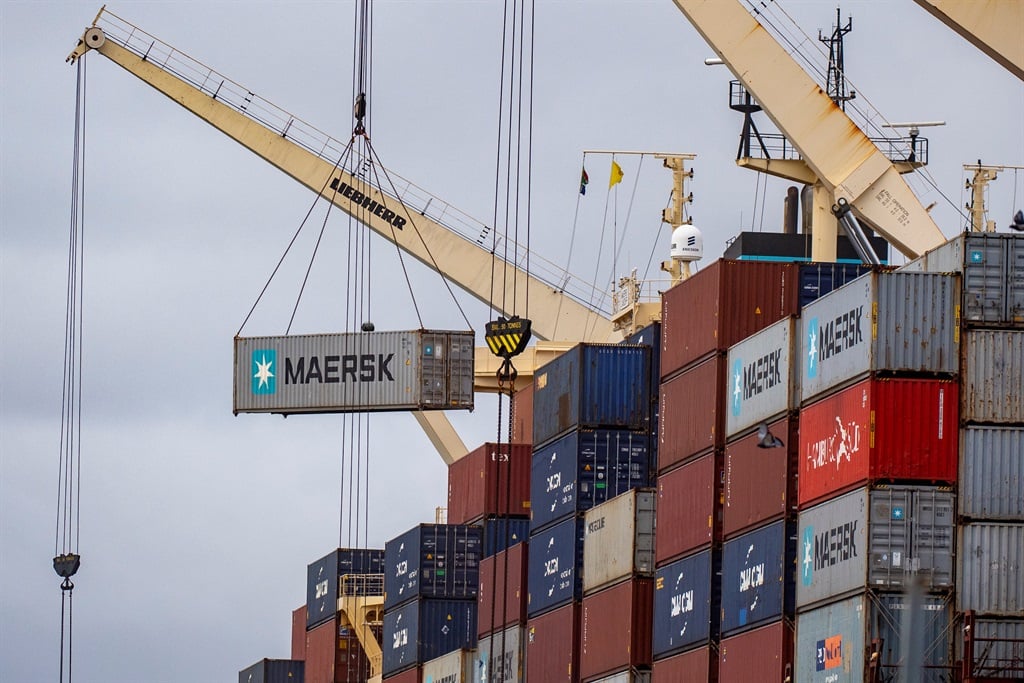
Members of the Multi-Party Charter in Durban on Wednesday where they shared their policy position on the economy of the country.
X formerly Twitter/@Our_DA
- The Multi-Party Charter has presented its first policy position on the economy of South Africa.
- The 11 members of the charter held a press briefing in Durban.
- The party believes its plans are the solution to solving some of the challenges South Africans face.
The Multi-Party Charter has unveiled its first policy position since it was formed and believes that its plans will lead to a “new economic direction” for the country.
In Durban, on Wednesday, the 11 party and civil rights group leaders presented their plan on economic growth, stabilising public finances, creating jobs, and enhancing the quality of education – among others.
“Today is the first time in South Africa that a group of opposition parties, representing the biggest voting bloc outside of the ANC in South Africa’s history, come together to present a shared agenda to grow our economy and create jobs.
“In the 2024 general election, voters now have a clear choice between the charter’s job creating approach and the ANC’s job-killing approach to the economy,” said the charter in a statement.
Some of the plans unveiled by the charter are:
- Unlocking the full potential of investment by removing barriers and eliminating overly prohibitive limitations.
- Defend property rights and introduce additional legislative measures to protect land, capital, and intellectual property rights.
- Creating competitive local manufacturing and productive capacity, by reducing fuel prices through targeting general fuel levy, reforming fuel taxes, and deregulating the sector.
- Ensuring value for money in government expenditure on economic infrastructure, enhancing the efficiency and transparency of fiscal management.
- Establish fiscal discipline on government borrowing by capping the debt-to-GDP ratio annually through implementing fiscal rule and ensure the independence of the South African Reserve Bank.
- Equip South Africans with quality education that can address societal inequalities, enable active participation in the economy, and increase productivity.
- Improve the quality of education by addressing the education crisis through the depoliticisation of the education system, enhancing curriculum delivery, and reintroducing fit-for-purpose performance management systems.
The charter hosted its press briefing at the Durban Harbour, and ActionSA president Herman Mashaba, said the state of the harbour was a “powerful example” of the country’s economy.
“Durban Harbour should be busy with container ships coming all day long, taking our exports to all corners of the world, instead it is so badly run by Transnet that it has become a serious bottleneck to economic activity,” he said.
Mashaba added:
The South African economy has immense potential, but the ANC has put up too many obstacles in its path.
Speaking about the first policy position of the Multi-Party Charter, DA leader John Steenhuisen said technical teams had sat to give South Africans an idea “on where our priorities would lie as a government.”
“Today is important because economic [development] stands as a crucial pillar to progress in South Africa, and it should be our primary focus, aiming to enhance the quality of life to all South Africans,” he said.
“We are urging all South Africans to support the Multi-Party Charter to bring around meaningful change. We can change South Africa’s future, we can build a more inclusive Parliament, we can get people out of poverty and to opportunities. But it is going to require the collective effort of all of us, the Multi-Party Charter has given South Africans for the first time in 30 years a credible path to victory,” said Steenhuisen.
Meanwhile, IFP leader Velenkosini Hlabisa said the Multi-Party Charter was different from any other coalition partnership formed after the local government elections.
He said the charter had done visits to other countries, such as Germany and Denmark, to observe good practice in coalition government.
Hlabisa said:
The experience we have gathered is to ensure that we do not repeat what we see [in the] local government sphere. If you take CoJ (City of Johannesburg) we would be a joke.
He added: “So the difference is that the groundwork has been done earlier, we have tried to align our views in order to ensure that in the 14 days period [when government would need to be formed] it does not take a year to make a change for the people of South Africa.”
The IFP president also weighed in on the emergence of the uMkhonto we Sizwe Party. Hlabisa said the people of South Africa have seen enough, and they would be able to use their vote wisely come elections.






Recent Comments